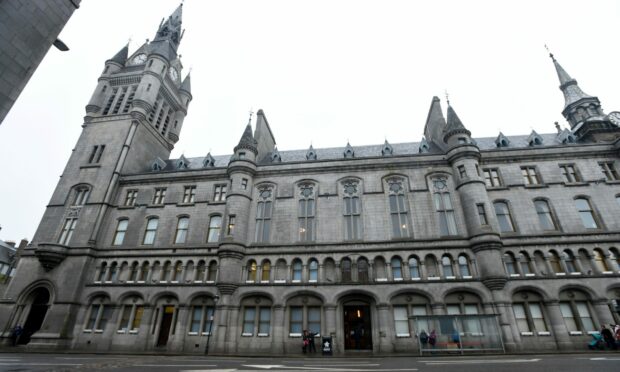Aberdeen solicitors have hit out at proposals to scrap Scotland’s not proven verdict and make drastic changes to the justice system.
The Victims, Witnesses and Justice Reform (Scotland) Bill will also change the size of criminal juries from 15 to 12.
However, the majority needed for a guilty verdict is to remain at eight, meaning the majority of juries could believe an accused person is guilty and still have to return a verdict of not guilty.
The Bill aims to address a number of issues around serious sexual offences, creating a new specialist sexual offences court.
‘Not proven verdict has been a key part of the Scottish justice system’
There will also be a pilot of rape trials being conducted by a single judge and without a jury.
Now, the Aberdeen Bar Association has voiced its concern about the reforms.
President of the association Garry Sturrock said: “The not proven verdict has been a key part of the Scottish justice system for centuries and has been an important protection against miscarriages of justice.
“Our members are concerned that the proposed abolition appears to be founded on the misconception that it contributes to low conviction rates in certain cases.
“As the Faculty of Advocates highlighted in their response to a consultation paper last year, radical reform of our legal system ought not to be embarked upon solely based on discontentment with conviction rates in certain types of cases.”
An ‘absolutely disgraceful notion’
Turning to the proposed piloting of juryless rape and attempted rape trials, Mr Sturrock said: “Our members consider this to be a significant erosion of the right of an accused person to be tried by a jury of their peers in serious cases in Scotland and would create an unjustified dichotomy between serious sexual and non-sexual cases.
“The Aberdeen Bar Association is extremely concerned at what appears to be a further erosion of the rights of an accused person in Scotland, which are a cornerstone of a free and democratic society.
“Whilst reform of the legal system to further protect victims and witnesses is to be supported, we consider that this must not be at the expense of the right to a fair trial for an accused person.”
Meanwhile, solicitor Mike Monro, of Mackie and Dewar, also vocalised his discontent with the idea of juryless rape trials, branding it an “absolutely disgraceful notion”.
‘Cost-cutting measures designed to provide justice at a reduced cost’
He added: “The whole basis of the Scottish court system is that an accused person is judged by a jury of his or her peers.
“We can trust a jury for a murder case but we’re not going to trust them for a rape case? Explain that to me.”
On the subject of scrapping the not proven verdict, which is unique to Scots law, and cutting jury numbers to 12, Mr Monro added: “They’re trying to anglicise the system.
“In England, they require a unanimous guilty verdict, so what was wrong with ‘not proven’?
“Why not take away the guilty verdict? A case is either proved or not proved.”
And Gregor Kelly, a partner with Lefevre Litigation, said: “I am concerned that the proposed changes to the jury system are cost-cutting measures designed to provide justice at a reduced cost.
‘Action to improve the experience of those who suffer sexual abuse’
“I still believe that the Scottish criminal justice system is still envied by many and care should be taken before implementing radical changes.”
Paul Barnett, a partner with George Mathers and Co, fears the changes could bring about more miscarriages of justice.
He said: “This is nothing to do with justice and everything to do with politics and carries a real risk of increasing miscarriages of justice with innocent people being convicted of very serious allegations.
“Critics of the not proven verdict say that it’s confusing to the public and stigmatising to an accused who is acquitted with such a verdict, but I don’t think I’ve ever heard of anyone claiming that it’s confusing – and it’s no more stigmatising to an accused person than a not guilty verdict in a system where the accused has no anonymity even in the event of an acquittal.”
Minister defends bill
Justice Secretary Angela Constance said: “This Bill will put victims and witnesses at the heart of the justice system.
“It is testament to the efforts of many campaigners who have worked to ensure that the processes of justice better serve victims, witnesses and vulnerable parties.
“This landmark legislation is among the most significant since devolution and will ensure fairness is cemented into the bedrock of Scotland’s modern-day justice system.
“Building on the experiences of survivors, victims and their families, these key reforms will make justice services more sensitive to the trauma it can cause.
“This government has been clear we must take action to improve the experience of those who suffer sexual abuse.
“The majority are women, who must be supported to have trust and confidence that the processes of justice will serve their needs, allow them to give their best evidence and support them in their recovery.”
For all the latest court cases in Aberdeen as well as crime and breaking incidents, join our Facebook group.
